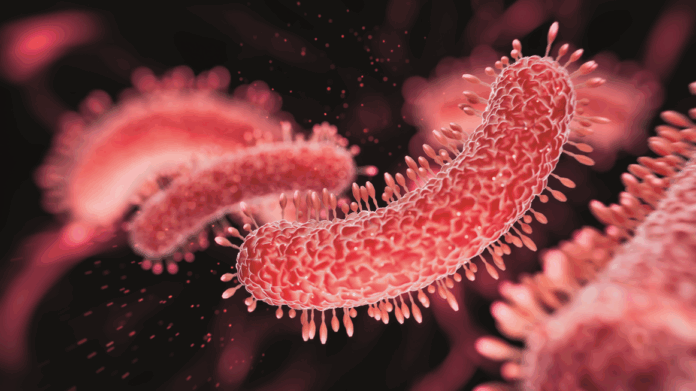
By Erika Yarrow-Soden
‘Global research agenda for antimicrobial resistance in human health’ is the World Health Organization’s (WHO) latest research agenda aimed at providing guidance for progress on antimicrobial resistance (AMR). The publication highlights the improvements in water, sanitation and hygiene services (WASH) – along with wastewater management – that will be critical for the prevention of infection and a reduction in the spread of AMR. To address this, the new research agenda states two (out of a total of 40 priorities) for ‘WASH in communities’ and ‘WASH in health care settings’. These are:
- To investigate the impact, contribution, utility, effectiveness, and cost-effectiveness of interventions to ensure safely managed WASH and waste management practices in community settings to reduce the burden and drivers of AMR, such as unnecessary antibiotic use for diarrhoeal diseases in low- and middle-income countries.
- To investigate implementation strategies for WASH-related interventions in health care settings (including ensuring access to safely managed water and sanitation, safe hand hygiene, safe management of waste and environmental cleaning), and assess their impact, acceptability, equity, and cost-effectiveness on the burden and transmission of resistant health care associated infections and antimicrobial medicine prescribing across socioeconomic settings.
Further water related research priorities include the investigation of the factors that are driving colonisation and infection, including sanitation infrastructure, and the identification of optimal surveillance methods to generate reliable data on AMR.
Progressive agenda
A comprehensive work outlining top research priorities for tackling AMR, the agenda focuses on infections caused by drug-resistant bacteria and fungi using robust validated methods from a list of systematically identified research topics.
Grounded in the Global Action Plan on Antimicrobial Resistance, a resolution endorsed by the 68th World Health Assembly in 2015, this research agenda gives particular focus to the Global Action Plan’s objective to strengthen knowledge and evidence through surveillance and research. In addition, it responds to WHO’s mandate to develop a global public health research agenda that fills key gaps in knowledge around AMR.
Global urgency
AMR poses a considerable threat to human health, with an estimated 4.95 million deaths associated with bacterial AMR in 2019 alone. Mortality rates from infections with resistant organisms impact low- and middle-income countries disproportionately. In addition to this serious cost to human health, AMR is also associated with substantial costs to the global economy. This is predicted to reach $100 trillion by 2050 if no action is taken, according to the 2016 report of the Review on Antimicrobial Resistance titled ‘Tackling drug-resistant infections globally: final report and recommendations’. A further report in 2024 titled ‘Towards specific commitments and action in the response to antimicrobial resistance: recommendations for consideration by UN Member States’ states that treating people with resistant bacterial infections may cost $412 billion annually by 2035, with an additional $443 billion per year in productivity losses.
To address these concerns, the WHO AMR report calls for more research, along with the optimisation of current tools to support the implementation of evidence-based policies and interventions for AMR, especially in low- and middle-income countries.
Research agenda goals
The aim of WHO’s AMR research agenda is to identify and give priority to research topics with the greatest impact on mitigating AMR in the human health sector. Critical for the guidance of policymakers, researchers, funders, industry and civil society – and necessary for the generation of new evidence to inform AMR policies and interventions – this report is global in scope and focuses on AMR in the human health sectors. Particular attention is given to infections caused by the WHO bacterial priority pathogens, including drug-resistant Mycobacterium tuberculosis, and the WHO fungal priority pathogens, such as Candida auris, Aspergillus fumigatus and Cryptococcus neoformans.
The research agenda was developed through an adapted Child Health and Nutrition Research Initiative method, in close collaboration with a multidisciplinary Research Agenda Expert Group on AMR. In the first phase, 2340 knowledge gaps were identified through a systematic search of peer-reviewed and grey literature, screening 8409 documents published in the past 10 years. In the second phase, with technical input from a multidisciplinary Research Agenda Expert Group and based on input from a global consultation, these knowledge gaps were further consolidated into 175 research topics.
In the final phase, the Research Agenda Expert Group was invited to assess each of the 175 research topics against five criteria: filling critical knowledge gaps; answerability and feasibility by 2030; potential for translation into policy; impact on mitigating AMR; and promoting health equity. A research priority score accounting for the opinion of all individual experts was calculated to identify the top 40 research priorities, with 33 pertaining to AMR in bacteria and fungi and seven relating to drug-resistant Mycobacterium tuberculosis.
Continuity of learning
Aiming to foster research by 2030 – in accordance with the timeline of the Sustainable Development Goals (SDGs) – and catalyse scientific interest and investment among the scientific community, WHO recommends that the current list of research priorities be further translated into tangible, concrete research proposals that are fundable and implementable in settings with limited resources.
By providing the latest guidance on priorities for research, WHO’s new research agenda plays a critical role in the evolving picture around this serious global health issue. This latest publication on AMR follows the organisation’s 2023 policy brief ‘Global research agenda for antimicrobial resistance in human health’, which became the focus of academic research in the renowned, medical journal, The Lancet, in 2024. It is likely that this new guidance will become a key focus for a range of professionals and drive progress in this growing health concern that is impacting populations across the world.







